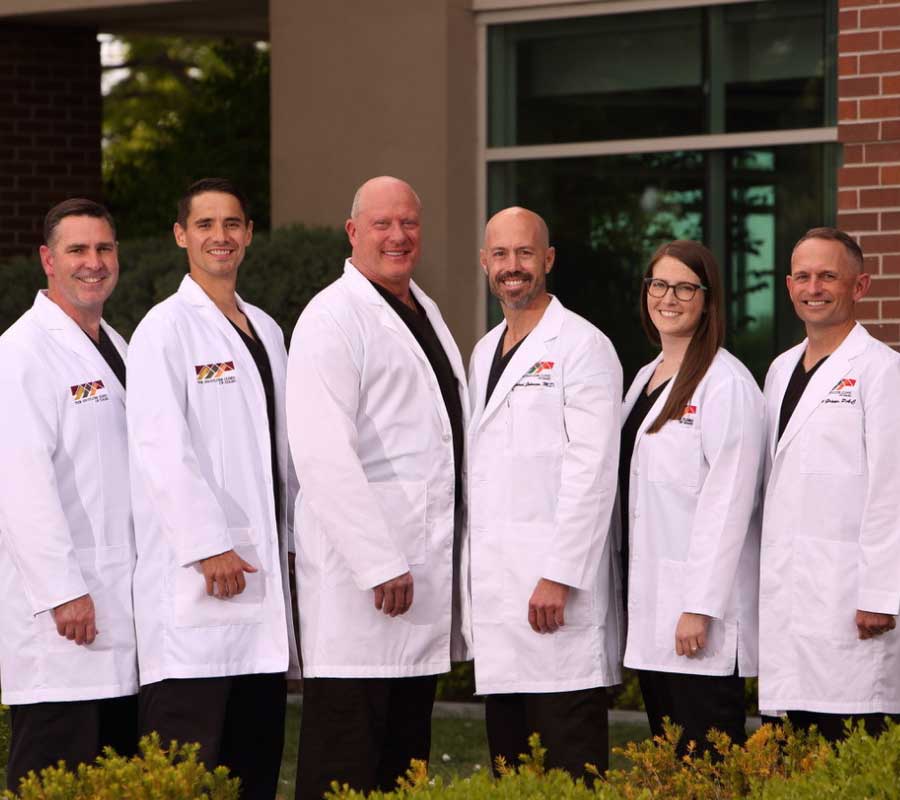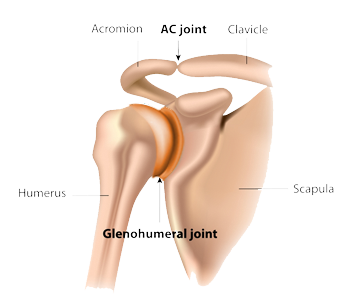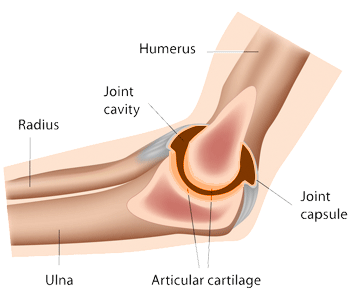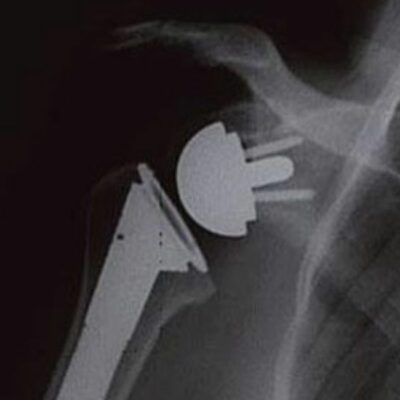Reverse Shoulder Replacement Surgeons

Are you suffering from severe shoulder arthritis? If so, you may be a candidate for a reverse shoulder replacement. Reverse shoulder replacement may be recommended in patients who have developed a complex type of shoulder arthritis called “rotator cuff tear arthropathy.” The reverse shoulder replacement surgeons at Shoulder Clinic of Idaho provide diagnosis and both surgical and nonsurgical treatment options for patients in the Boise area who have developed severe shoulder arthritis. Contact the Shoulder Clinic of Idaho team today!
What is Reverse Total Shoulder Replacement?
In the United States thousands of conventional, “regular”, or “anatomical” total shoulder replacements are successfully done for patients with shoulder arthritis. Anatomical or conventional total shoulder replacement replaces the normal anatomy of the shoulder by using a metal ball and plastic cup. The ball is fitted and specifically sized to the humerus (upper arm bone) and the cup is fitted and specifically sized into the glenoid (shoulder socket) to exactly match a patient’s own anatomy.
In a reverse total shoulder replacement, the anatomy is changed so that the shoulder can function in a way to improve strength of the shoulder. A reverse total shoulder can be beneficial in some patients who present with both arthritis and the inability to raise their arm. In a reverse total shoulder replacement, the metal ball is fixed to the shoulder socket and the plastic cup is fixed to the upper end of the humerus. The orthopedic shoulder specialists at The Shoulder Clinic of Idaho have performed hundreds of reverse total shoulder replacements for patients in Boise, Meridian, Nampa, and the surrounding communities of the Treasure Valley, with a proven record of excellent outcomes and have specialized training in performing this complex procedure.
Why would a reverse total shoulder replacement be needed?
Traditional or anatomical total shoulder replacement surgery is successful for patients with arthritis and a normally functioning rotator cuff tendon. In this conventional and anatomical surgery, the rotator cuff tendon helps position the arm and gives it power during movement allowing one to raise their arm with comfort and strength. If a patient has a torn or damaged rotator cuff tendon, or if the anatomy of the shoulder is significantly altered by prior injuries, shoulder fractures, or prior shoulder surgery, a traditional or anatomical total shoulder replacement may not function properly. This can result in a shoulder replacement with a poor result manifesting as persistent shoulder pain, limited shoulder range of motion and early loosening of the joint replacement. “Cuff tear arthropathy” is a condition that may develop in patients with chronic large rotator cuff tears which can cause progressive destruction of the shoulder joint. Cuff tear arthropathy is a condition in which the rotator cuff tendon no longer works normally and the shoulder develops a specific type of severe shoulder arthritis.It is one example of a shoulder condition which may require the need for a reverse total shoulder arthroplasty procedure. Complex shoulder fractures and failure of prior shoulder replacements are two other common indications for reverse total shoulder replacement surgery. To better understand why a reverse total shoulder replacement works, or why this specialized type of shoulder surgery may be necessary, it is important to see a shoulder specialist who has extensive experience and training in performing this type of surgery. The orthopedic shoulder specialists at The Shoulder Clinic of Idaho commonly evaluate patients who may be candidates for reverse total shoulder arthroplasty, and can answer any questions you may have regarding why an anatomical total shoulder replacement or a reverse total shoulder replacement would be the preferred surgical treatment for your shoulder.
Who should have a reverse total shoulder replacement?
Reverse total shoulder replacement may be recommended for the following:
- Cuff tear arthropathy
- Rotator cuff tears that are completely torn and cannot be repaired
- A previous total shoulder replacement that has failed or is not functioning properly
- Chronic shoulder dislocation or instability
- Severe shoulder pain with difficulty lifting the arm over head or to the side
- A complex fracture of the shoulder joint
- Failed previous non-surgical treatments that did not alleviate pain
What happens after reverse total shoulder replacement?
The shoulder specialists at The Shoulder Clinic of Idaho commonly perform this procedure and keep their patients in the hospital for one night following surgery. Patients receive antibiotics to prevent infection; and patients are evaluated by a physical therapist the morning following surgery to teach each patient their rehabilitation program. The orthopedic shoulder surgeons at The Shoulder Clinic of Idaho will provide a specific protocol after surgery involving the use of a sling and specific shoulder exercises to help you regain the comfort and function of your shoulder. Significant improvement in comfort and function is often achieved within three to four months of the surgical procedure. Many indicate that the rehabilitation is easier than an arthroscopic rotator cuff repair surgery or anatomical total shoulder replacement.
For more information about a reverse total shoulder replacement, or if you would like to see if you are a candidate for this specialized procedure, please contact The Shoulder Clinic of Idaho, serving Boise, Meridian, Nampa, and the surrounding communities of the Treasure Valley.



